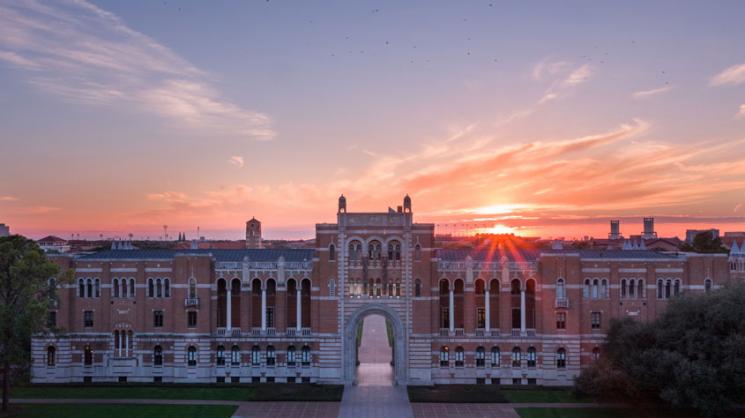The undergraduate engineering program at Rice University is ranked No. 20 in the nation, according to the 2020 U.S. News and World Report annual rating, while the university as a whole is ranked 17th.
The Department of Chemical and Biomolecular Department ranked No. 18 in the chemical engineering category.
Rice Engineering continues to rank among the top-20 in the newly released 2020 U.S. News & World Report ratings of the country’s best colleges, retaining its position as the highest ranked engineering program in Texas. Rice shares the No. 20 spot on the list in a tie with four other universities.
“I am delighted to see that we continue to be regarded among the top undergraduate engineering programs in the country. This is a tribute to the quality of our students and the commitment of our faculty and staff,” said Reginald DesRoches, the William and Stephanie Sick Dean of the George R. Brown School of Engineering.
The undergraduate bioengineering program at Rice ranked No. 8 in the nation in the magazine’s biomedical category, and Rice’s civil, computer, electrical, environmental, materials and mechanical engineering programs were all ranked in the top 30.
The undergraduate engineering program rankings are based on peer-assessment surveys. To be eligible, a school must have an undergraduate engineering program accredited by ABET. The programs are divided into two groups: schools where the highest engineering degree offered is a doctorate, and those where the highest degree offered is a bachelor’s or master’s degree.
U.S. News is the second major publication in a week to rank Rice among the nation’s top 20 universities. The Wall Street Journal/Times Higher Education College Rankings rated Rice No. 16, the only university in Texas in the top 50. The survey also lauded Rice in its “Top Schools for Resources” list, ranking the university No. 7 in its assessment of academic spending, student-faculty ratios and research output.
The WSJ/THE rankings focus on how well colleges prepare students for life after they graduate. The overall ranking is based on 15 factors in four main categories: student outcomes (including graduate salaries and debt burdens), academic resources, student engagement and diversity. The survey takes into account the responses to questions answered by roughly 174,000 students.

